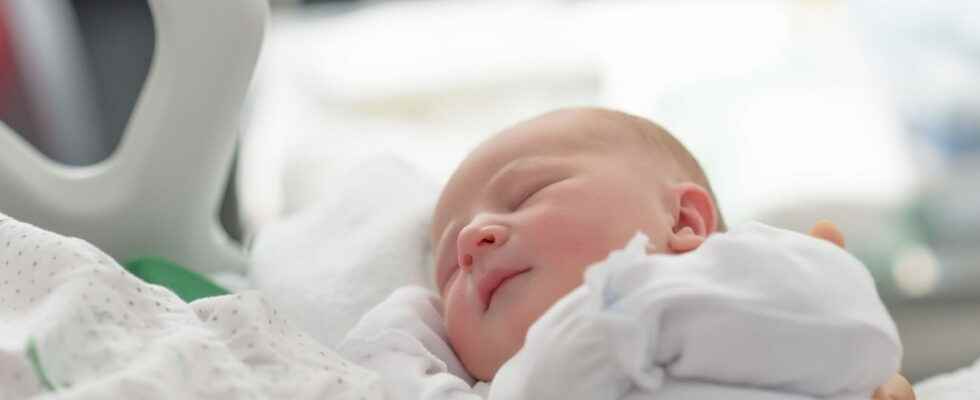Scientists have looked into the consequences of the first confinement, linked to the Covid-19 pandemic, on newborns. Language and developmental delays were noted.
The infants who experienced the first confinement also seem to have had the consequences of the Covid-19 pandemic. Scientists from the Royal College of Surgeons in Dublin, Ireland demonstrated in a recent study that infants who have been confined for several weeks are now showing language and developmental delays.
What kind of delays do containment babies have?
Researchers surveyed the parents of 309 Irish babies born between March and May 2020. They asked them to rate different abilities in their child such as crawling, picking up small objects with thumb and forefinger, and expressing at least one word “defined and significant”. They then compared the data collected with that of other Irish babies born between 2008 and 2011. Results? By age one, 94% of infants born before the pandemic were able to point to an object by pointing to it, compared with 84% of other babies. Another example and another decline: after a year, 95% of babies born outside confinement managed to say “goodbye”. A figure that rises to 88% for infants in 2020. One of the study’s authors, Dr. Susan Byrne, pediatric neurologist, also reported thatone in four confined babies have never met another child their age before their first birthday.
Why has confinement created a certain delay in babies?
Experts partly explain these slight delays by a lack of social interaction. “A lot of these babies were home and didn’t see many people leave, which meant there was no one to say goodbye to. Also, since they weren’t going out, they had no not the opportunity to discover new things and point them out”, said Dr. Byrne. Social isolation would thus have an impact on the communication skills of toddlers.
Will this delay have long-term consequences?
Can these delays be made up for? For researchers, the answer is yes. These delays remain slight and growing up it is quite possible to fill them. “Babies are resilient and inquisitive by nature, it is hoped that as society reappears and social circles increase, their social communication skills will improve,” they concluded in their study.
